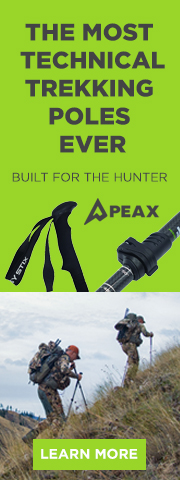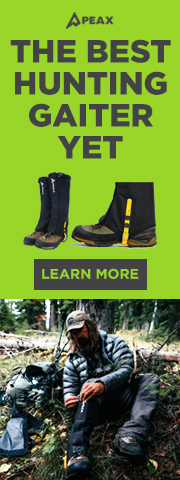I\'ve listened to all of elknuts teachings. I\'ve also subscribed to Chris Roe\'s website and listened to all of his teachings as well. Recently, I\'ve been introduced to Corey Jacobsen\'s slightly more basic and to the point ideas of elk communication.
How do you \"communicate\" with the elk when hunting during the rut?
I\'m settling my pendulum somewhere in between trying name and understand every sound (elkut and roe) and only using three sounds every time regardless (jacobsen).
How do you \"communicate\" with the elk when hunting during the rut?
I\'m settling my pendulum somewhere in between trying name and understand every sound (elkut and roe) and only using three sounds every time regardless (jacobsen).



